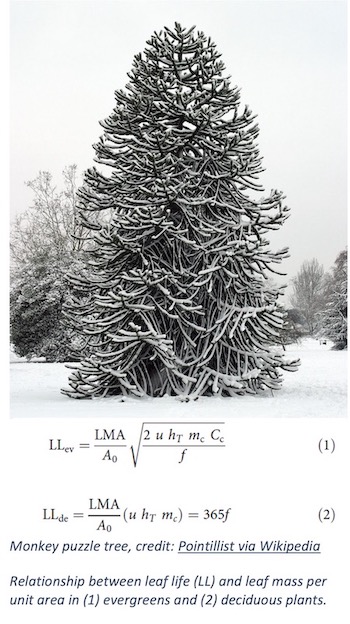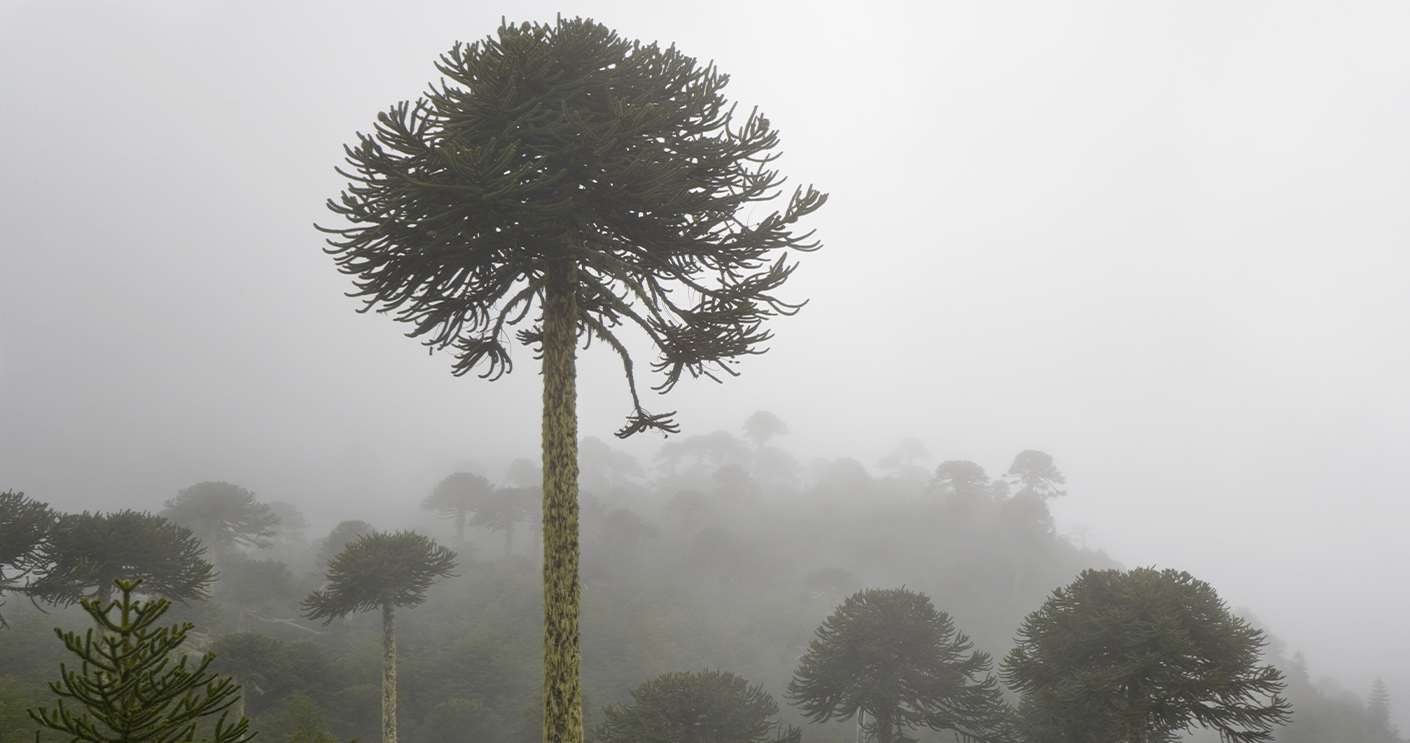Monkey puzzle tree leaves can live for more than two decades. And Picea growing in the Gongga Mountains in China can thrive for thousands of years, growing slowly in severe environments with leaves that last 20 years on average.

So, what determines the lifespan of a tree leaf?
The answer to that superficially simple question was recently reported in a paper in Science Advances by an international team of researchers from China, the UK, Japan, Norway, USA, and Australia.
“It’s all about the economic choices faced by plants,” says first author, Dr Han Wang from Tsinghua University in Beijing.
“We already knew that conifers and other evergreen trees make longer-living leaves the closer they are to the poles,” she continues. “Deciduous trees do the opposite. Their longest-lasting leaves are found at the tropics.
“And we knew that long-lived leaves tend to be tougher and thicker, and more expensive to build. Now, we have identified the major environmental factors at play, and summarised them in two equations.
“These leaf economic traits are fundamental to the carbon cycle and nutrient economy.”
The team tested their equations using data from thousands of species from hundreds of ecosystems, drawn from the China Plant Trait Database and the Global Plant Trait Network.
“Each species is essentially taking a punt on the best way to maximise carbon absorption,” says co-author Professor Ian Wright from Macquarie University and Western Sydney University.
“Evergreen conifers growing in poor soil in areas with a long cold winter can only thrive if they make long term investments in their leaves. Whereas deciduous trees, like the maple, race to create new leaves and capture carbon in the summer sun before leaf-drop in autumn,” he adds. “The economically rational decision for a maple tree is to invest in fast-growing, cheap but flimsy leaves.”
Plants have been subject to profound changes in climate during their evolution. Glaciation and other large, and sometimes rapid, changes in recent geological times have resulted in major changes in vegetation. The human impact on climate and direct impact on vegetation are adding to the forces shaping plant communities, in ways that remain only partly understood.
The researchers propose that this research will not only explain what grows where today, but it will also move ecology into a predictive science that will:
- enable better, more accurate global and regional climate models
- allow land managers to better model forests and other vegetation, and predict how climate change will affect ecosystems
- allow better estimation on crop yield and the impact of climate change on agriculture.
The paper builds on 20 years of research led by Wright and Professor Mark Westoby at Macquarie. The global team also includes researchers from Imperial College London, UNSW Sydney, Cornell University, Ishikawa Prefectural University, and the University of Oslo.
Their 2004 paper in Nature, ‘The World-wide leaf economics spectrum’ has been cited more than 7500 times and has been followed by papers on leaf photosynthetic capacity, leaf respiration costs, leaf nitrogen concentration, leaf size, and now, leaf lifespan.
“This body of work has transformed ecology,” says Professor Nathan Hart, Head of the School of Natural Sciences. “It’s also key to ongoing work by Macquarie researchers on the impact of plant invasions, resilience of horticultural species to climate change, and the form and function of plant species on the thousands of islands that surround the Australian mainland.”


 Back to homepage
Back to homepage